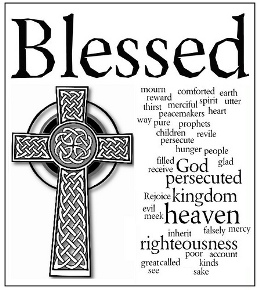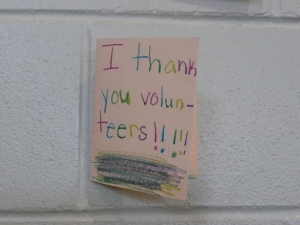Matthew 7:1-5 New Revised Standard Version (NRSV)
Judging Others
7 “Do not judge, so that you may not be judged. 2 For with the judgment you make you will be judged, and the measure you give will be the measure you get. 3 Why do you see the speck in your neighbor’s[a] eye, but do not notice the log in your own eye? 4 Or how can you say to your neighbor,[b] ‘Let me take the speck out of your eye,’ while the log is in your own eye? 5 You hypocrite, first take the log out of your own eye, and then you will see clearly to take the speck out of your neighbor’s[c] eye.

(Photo by Patrick Fore on Unsplash)
What are some of the words of wisdom you follow in your everyday life? I’m not thinking specifically about scripture, though some of those may apply. I’m thinking more about the practical advice we learn from our parents and friends as we grow up. Some I hear my sister and I saying to my niece, just as our mom said them to us. Fred, my stepfather is famous for saying, no matter the weather, “take a sweater or jacket, it might be cold in the restaurant.” From a good friend of mine in college as we were writing out thesis and surviving on caffeine and ramen noodles “remember, vitamins are not actually food.” When I got my first GPS as a Christmas present one year, the tag from my mother said “remember, you are always smarter than the computer.” Which was her way of reminding me to use my own brain when or if the GPS told me to turn into a river or drive on the railroad tracks – both of which happened in the infant days of the technology.
One phrase that sticks with me is one I received from a colleague. We were reading a news article online and at end was a comment section where anyone who wanted to could say anything they wanted to about the piece. Or they could say anything they wanted to about anything. I started to scroll down to see what other people thought of what we were reading, and he stopped me with these words “never read the comments.” Have you ever read the comments on a news article online? They seem to fall into several categories – the spammers who say “now that you’ve read about this, let me tell you how I make $5000 a day working from home.” Those who enjoyed the piece and offer positive feedback. These are rare. Then you have those who disagree with the piece, but do it in such a way that they remain civil and maintain a place where dialogue can happen. Or maintain a place where they can show off their knowledge. “While I see where you are coming from in saying that Eat at Joe’s is the best restaurant in Nineveh, Joe hasn’t cooked there in years. To really get the best food in town, you need to go to his new place, Eat at Joe’s 2.” And then you get to the comments that are mean and hurtful and judgmental for no good reason. I broke the rule yesterday reading a piece about Michael Phelps, the Olympic swimmer, racing against a shark in the ocean. He’s going to swim in a shark cage and they’ll time him, then they will time a shark – it’s all part of shark week. One of the first comments listed said “this is the stupidest thing I have ever read.” As my colleague remarked about most of the comments on internet articles, “they don’t do anything to make the world a better place, and instead just make the authors feel bad about themselves, and serve the purpose of picking fights with people they have never met.” If you want a really depressing afternoon, find a news article online – political ones usually yield the best results, and read the comments. People who have never met in real life attack one another as they pretend to discuss the article, and the individuals involved. It’s brutal. And often, someone trying to help will toss out this verse – judge lest not you be judged.
I think somehow we as followers of Jesus have forgotten this nugget of Jesus’ teaching. And so we go about or lives judging as much as we can without even realizing we are doing it. How many of the summer programs on TV are talent/music/dancing shows with contestants and judges? My sister and I were bemoaning the fact that Food Network is now so much more a food competition channel than a channel with shows designed to teach people to cook. Society also makes judging the norm. How quick are we to respond with criticism when someone makes a choice that we do not agree with or think is the right one? How quick are we to dismiss ideas simply because we do not like them rather than based on their actual merit? When have we lumped a group together and questioned their life choices. I will admit, every time I see someone who may be in the millennial age group with a man bun, I make a snarky comment in my head.
What does judging look like? In a competition it is making an evaluation based on what is presented, assigning value to it, and forming an opinion. I tried to use light examples above, but we do it all the time. We form opinions about how others raise their children. We form opinions about how others should dress or act. We form opinions about things we know nothing or little about. And often we are quick to do so.
Jesus knew this about us. That’s why he lifts up this particular teaching. He knew that we would spend our lives presented with information and encounters and we would make decisions about them. Judging, in the pure sense of the word does not have to be negative. But, so often judging is just that. Because of often instead of judging, we move straight to criticizing or condemnation. We respond in ways that are hurtful, harsh, and, well, judgmental.
The image in today’s reading is quite comical, if you think about it. The greek word for “log” in this passage was not really a log. Think about instead a huge wooden cross beam – the size to support a ceiling perhaps. If you watch any of the home renovation shows, you may be familiar with the people who want to tear down a wall for a more open concept look. 90% of the time those walls are load bearing, so a beam has to be put in elsewhere to support the weight. So cranes or groups of 6-10 people bring in beams that are 10 feet long to hold the weight. That’s the scope of what Jesus was talking about. So, picture something that large sticking out of your eye – I don’t know how it actually works, but pretend with me. And then, somehow, you see a speck in someone else’s eye. The thing that should not be there. And you try to reach out to remove it. But the log in your eye gets in the way. It sticks out too far. You can’t reach past it. It bumps into the other person. Until you deal with the log, you can’t possibly remove the speck from the other person’s eye.
Sometimes children’s sermons can offer a better way for us to hear the truth: Do you think Jesus was really talking about sawdust and boards in this verse? No, he wasn’t talking about that. What he was talking about is judging other people. Sometimes we look at other people and we see something wrong with their life, like the piece of sawdust, so we judge and criticize them. We think that they have a problem and then we try to fix it for them. But often times we have an even bigger problem in our own life, the board, and that gets in the way of us helping others. We all have logs. Sometimes we call them baggage. What are the logs in your eyes? What are the problems and issues in your own life that need fixing before you can think about the issues of others? If you were going to label your logs, what would you write on them? Think about that for a moment, write it down if you want. Is your log named gossip? Greed? A tendency to jump to conclusions before you know all the facts? Fear? Selfishness? A need to control or be right? Maybe your log is one that is made up of a sense of being better than others. A sense that you know best. Self-reliance can be a log if it gets in the way of our offering or receiving help from others. Maybe your log is something you need to move past – grief is one that comes to mind. The grief that comes with a death, disappointment, a beloved pastor’s leaving, not getting what you wanted. Sometimes logs are more basic – we want to criticize, judge, someone for how they spend their money when we are having financial issues of our own is one example. We are criticized for giving our children candy before bedtime by the parents who are alienated from their own children.
One of the things I love about being Presbyterian is our belief in the connectional church. It is how we have ordered our polity (church government) and is foundational in who we are. We model that each congregation is a smaller part of the body of Christ, and that we are all connected with one another. Congregations can rely on one another for resources, for inspiration, and for companionship on the journey as we all serve Christ together. In some presbyteries, smaller congregations share pastors or bookkeepers or administrative assistants. In others, congregations partner together to hold joint VBS. In this presbytery, there is a group of pastors that gathers on Tuesday mornings to read the scriptures for the upcoming week and discuss them and share our collected wisdom around the table. It enriches the worship life of each congregation touched. Something that has come out of that is our sermon series from Matthew about the Teachings of Jesus. I said this when we first began the series – that we are not doing this series alone. Rev. Mark Piedmonte, the pastor at the Gilbertsville and Garrettsville churches, and I are preaching and teaching his series together. The liturgy is the same in all three congregations, though the hymns are different. The scriptures are the same, though the sermons are different. We are hoping to find a way to bring all three congregations together for a Bible Study – a one time event – to share what we have learned about the teachings of Jesus in Matthew. Mark shared this story about the text and his recent mission trip with the youth to Broad Street Mission in Philadelphia on the church’s Facebook page today:
While in Philadelphia some youth and adult leaders (including myself) had the opportunity to stand in the shoes of homeless men and women and try to sell newspapers – the proceeds of which benefit homeless people and help them get back on their feet. That’s good news! (It would have been better, of course, had we sold any. We did sell a few – but mostly we were all shooed away by the many people who passed us by that day.)
It is quite a humbling thing to receive the judging stares of thousands of pairs of eyes. It takes a toll on your spirit and mind. You might even begin to judge the passers-by; judging their clothes, their priorities, their Starbucks lattes.
Receiving these shoos, it dawned on me:
Judgement is always a two-way street.
Jesus, I believe, knew this about human nature. That’s why he commanded his disciples – Do not judge! Rather – try to recognize the logs in our own eyes. Let go of the judgements we hold over others – and we’ll find we have more room for loving our sisters and brothers.
Mark poses a question for us – what happens when we can let go of our logs? How will letting go of judging others change our lives and our encounters? I know there are times when I have been judged unfairly. The speck in my eye was overshadowed by the log in the eye of the other party – the log of not having all the information or knowing what was really happening. As a pastor, it happens. And, sometimes I judge. As a person it happens. When I was in my last congregation, I was the front line for people coming in the door seeking assistance. We had policies in place – I wrote them, and I sometimes broke them when needed, with the blessing of the Diaconate who oversaw the fund. I also realized very early on that I would never ever know the whole story of the person who walked in the door asking for help. I could act from a place of compassion and grace and offer what we could, or I could act from a place of judgment and critique and not live out the gospel. I didn’t always call it right. I’m sure, even with our policies and checks and balances with other agencies and offices, that I overhelped on occasion. That giving the mom with the baby an extra voucher may get them diapers for another few days but would not solve their problems. I also remember a time when a Deacon got upset because I had paid a cell phone bill for a man who had come in. All this person saw was a line on a church credit card statement for a card for prepaid minutes. They thought I had paid for a luxury for someone who didn’t deserve it. What they had not considered was that this person had applied for multiple jobs, and without the cell phone – an inexpensive one – he could not get calls about interviews or make calls to follow up on job leads. It didn’t happen every time. I’m sure I made some bad calls the other way too. But by letting go of my hold on being the arbiter of help only if it met some impossible standard, I was able to show the love and mercy of God to those in need.
Think of a time when you were able to set aside your judgment and act in love. When our first reaction is condemnation rather than love, when it is to focus on a speck rather than our own stuff, when we write words in the comments that are hurtful just because we have a platform – or we speak words that are hurtful or judgmental just because someone will listen – -we are not giving God room to work. When we criticize our neighbors in the congregation who want to try something new, perhaps that is shutting down the creativity of the Holy Spirit. When we discount someone simply because they may look or act differently than we do, the log of discrimination is much larger than the speck of not being just like us. We are not truly loving one another.
I ask you this today – again write down answers if you want as we go. What person or groups of people might you be judging? In the world? In our life together? How might letting go allow you to find a way to show them love rather than condemnation? How might doing so help people? Communities? Nations? Where is God trying to help you release the log in your eye so you can love and serve others in the name of Christ?
Sometimes we don’t like what Jesus teaches us. I wonder if that is why this passage, which is in Matthew, Mark, and Luke does not appear in the lectionary? This can be some hard stuff. I encourage you this week to pray about your logs. If you think you don’t have one, ask God to show you what it is, because we all do. Pray for God to show you how they may be impacting your interaction with the world. Imagine what it would be like to have the freedom to love not from a place of judgment and condemnation, but from a place of remembering that we all have logs and we all have specks and we are all called to remove them together. In the name of the F, S, and HS, Amen.







You must be logged in to post a comment.